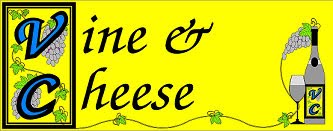"Diatomaceous earth," she says when I introduce her to the wine, clearly something that stuck with her from prior reading. She followed with, "It has to do with soil that was previously part of a seabed." And that is essentially correct. More specifically it involves all kinds of dead fossilized algae (diatoms) of all shapes and sizes that have been accumulating in certain locations worldwide over the course of a hundred fifty million years. That onset, if you're keeping score, was in the Jurassic Period. Prior to that there was some kind of bacteria that didn't require light to exist. It was effectively killed off by the algae leaving really no trace of what it might have been.
Algae was a gamechanger in the history of the planet because, if you recall your high school science classes, algae is a plant and what do plants do? Photosynthesis. They convert light energy into chemical energy. And how much photosynthesis can a little algae do? Living algae, which may account for half of all organic matter in the oceans, actually do twenty-five to fifty percent of all photosynthesis in the world. To state the obvious, this is huge.
The layer of dead algae on the bottom of the oceans may be a half mile thick. Because of the currents at work around the world, those dead diatoms work themselves up to our soils in certain locations around the world, one of them being in Santa Barbara, California where Diatom Vineyards exists. The Santa Barbara diatomaceous earth is a siliceous sedimentary rock that crumbles into a powder that has proven useful in winemaking. It is an abrasive, like pumice, with tiny pores that both filter and polish a wine that is poured through it.
Diatom is the best California Chardonnay we have tasted in quite a while. It is unoaked with no malolactic fermentation yet tastes rich. Winemaker Greg Brewer uses low yield, perfectly ripe fruit from Santa Maria Valley to make this wine. The nose features "fresh melon, key lime, and celery (!)"; the palate has "herbs and zesty citrus fruit." Most critics scores Diatom Chardonnay in the mid-nineties.



